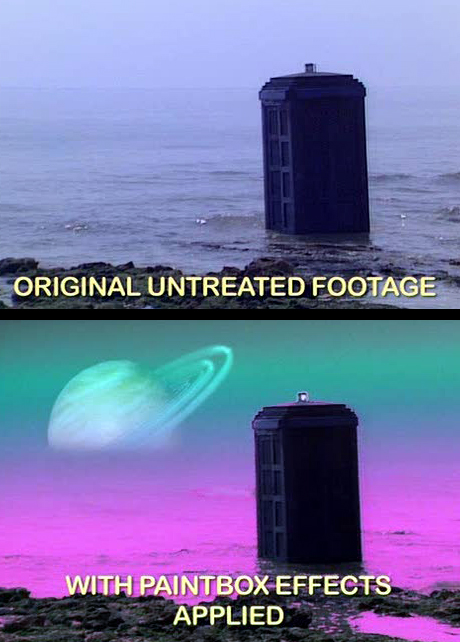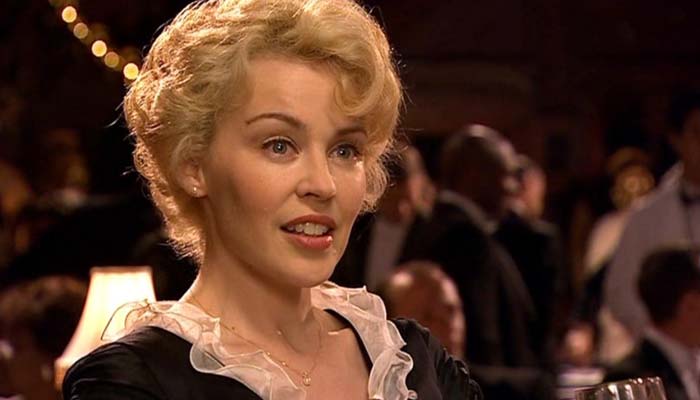Transmat:Doctor Who: Difference between revisions
No edit summary |
Eyacorkett (talk | contribs) mNo edit summary |
||
| (42 intermediate revisions by 8 users not shown) | |||
| Line 1: | Line 1: | ||
__NOTOC__ | __NOTOC__ | ||
{{template:transmat:{{PAGENAME}}}} | {{template:transmat:{{PAGENAME}}}} | ||
<div | <div id="tr-box-container" style="width:98%"> | ||
<div id="tr-box-container" class="tr-box-cols" style=margin-top:40px> | <div id="tr-box-container" class="tr-box-cols" style=margin-top:40px> | ||
<div class="tr-box one"> | <div class="tr-box one"> | ||
{{thead|The women who gave ''Doctor Who'' back to us}} | {{thead|The women who gave ''Doctor Who'' back to us}} | ||
[[file:JaneTranter.jpg|link=http://tardis.wikia.com/wiki/Transmat:Doctor_Who?file=David_Tennant_interviews_Doctor_Who_Producers_-_Doctor_Who_Confidential_-_BBC]] | [[file:JaneTranter.jpg|center|link=http://tardis.wikia.com/wiki/Transmat:Doctor_Who?file=David_Tennant_interviews_Doctor_Who_Producers_-_Doctor_Who_Confidential_-_BBC]] | ||
{{tcap|Click for video}} | {{tcap|Click for video}} | ||
Think ''Doctor Who'' is just for boys? Don't you believe it. Not only was the show's [[Verity Lambert|very first producer]] a woman, but it would never have come back without the fierce advocacy of '''[[Jane Tranter]]''' and '''[[Julie Gardner]]'''. Considering her importance to ''Doctor Who'' it's somewhat ironic that Tranter's only on-screen ''credits'' are for ''[[Torchwood: Miracle Day]]''. But Gardner, her "partner in crime", is tied only with [[Russell T Davies]] as the most prolific producer in ''[[Doctor Who]]'' history. | Think ''Doctor Who'' is just for boys? Don't you believe it. Not only was the show's [[Verity Lambert|very first producer]] a woman, but it would never have come back without the fierce advocacy of '''[[Jane Tranter]]''' and '''[[Julie Gardner]]'''. Considering her importance to ''Doctor Who'' it's somewhat ironic that Tranter's only on-screen ''credits'' are for ''[[Torchwood: Miracle Day]]''. But Gardner, her "partner in crime", is tied only with [[Russell T Davies]] as the most prolific producer in ''[[Doctor Who]]'' history. | ||
</div> | </div> | ||
<div class="tr-box | <div class="tr-box two"> | ||
{{thead|Industrial action}} | {{thead|Industrial action}} | ||
[[File:Paintbox.jpg|link=http://tardis.wikia.com/wiki/Transmat:Doctor_Who?file=BBC%2527s_Historic_Mainframe_Arrives%2521%2521_%2528Quantel_Paintbox_DPB_7000%2529_This_created_many_80s_programs%2521%2521]] | |||
{{tcap|Click for a video of a [[21st century]] geek as he takes delivery of one of the two Paintboxes used by the BBC in the 1980s}} | |||
The '''[[Quantel Paintbox]]''' was a graphics workstation that allowed ''[[Doctor Who]]'' to have a primitive form of [[colourist|colour grading]] in the [[1980s]]. To find out more about the "business of show", go to '''[[:category:production information]]''', where you can read about [[colour separation overlay]], [[low loader]]s, [[telerecording]]s, [[vidFIRE]], [[rostrum camera]]s, [[2" quad]] tape, [[Ealing Studios]] and tons more.</div> | The '''[[Quantel Paintbox]]''' was a graphics workstation that allowed ''[[Doctor Who]]'' to have a primitive form of [[colourist|colour grading]] in the [[1980s]]. To find out more about the "business of show", go to '''[[:category:production information]]''', where you can read about [[colour separation overlay]], [[low loader]]s, [[telerecording]]s, [[vidFIRE]], [[rostrum camera]]s, [[2" quad]] tape, [[Ealing Studios]] and tons more.</div> | ||
<div class="tr-box | <div class="tr-box one"> | ||
{{thead|Surprising guest star}} | {{thead|Surprising guest star}} | ||
{{surprising guest}} | |||
</div> | </div> | ||
<div class="tr-box | <div class="tr-box two"> | ||
{{thead|Ex-Doctors never die, they just make audios}} | {{thead|Ex-Doctors never die, they just make audios}} | ||
The careers of the [[Fifth Doctor|Fifth]], [[Sixth Doctor|Sixth]], [[Seventh Doctor|Seventh]] and [[Eighth Doctor]]s are '''significantly''' longer [[Big Finish Doctor Who audio stories|in audio]] than on television. Check out their latest works at '''[[:category:{{CURRENTYEAR}} audio stories]]''' | The careers of the [[Fifth Doctor|Fifth]], [[Sixth Doctor|Sixth]], [[Seventh Doctor|Seventh]] and [[Eighth Doctor]]s are '''significantly''' longer [[Big Finish Doctor Who audio stories|in audio]] than on television. Check out their latest works at '''[[:category:{{CURRENTYEAR}} audio stories]]'''. | ||
</div> | </div> | ||
<div class="tr-box | <div class="tr-box one"> | ||
{{thead|The relevance of comics}} | {{thead|The relevance of comics}} | ||
Officially, only ''[[The Lodger (TV story)|The Lodger]]'' has been explicitly adapted from a comic strip — also called ''[[The Lodger (comic story)|The Lodger]]''. | Officially, only ''[[The Lodger (TV story)|The Lodger]]'' has been explicitly adapted from a comic strip — also called ''[[The Lodger (comic story)|The Lodger]]''. | ||
[[File:10MickeyFootball. | [[File:10MickeyFootball.jpg|center|link=http://tardis.wikia.com/wiki/Transmat:Doctor_Who?file=Craig_asks_The_Doctor_to_leave_-_Doctor_Who_-_BBC]] | ||
However, several stories have clearly taken material from comic strips — often those in ''[[Doctor Who Magazine]]''. ''[[The Shakespeare Code (TV story)|The Shakespeare Code]]'' contains a good amount of material from ''[[A Groatsworth of Wit (comic story)|A Groatsworth of Wit]]'', and the notion of the Doctor absorbing the [[time vortex]] in order to spare a [[companion]] was explored in both ''[[The Parting of the Ways (TV story)|The Parting of the Ways]]'' and ''[[The Flood (comic story)|The Flood]]''. | However, several stories have clearly taken material from comic strips — often those in ''[[Doctor Who Magazine]]''. ''[[The Shakespeare Code (TV story)|The Shakespeare Code]]'' contains a good amount of material from ''[[A Groatsworth of Wit (comic story)|A Groatsworth of Wit]]'', and the notion of the Doctor absorbing the [[time vortex]] in order to spare a [[companion]] was explored in both ''[[The Parting of the Ways (TV story)|The Parting of the Ways]]'' and ''[[The Flood (comic story)|The Flood]]''. | ||
</div> | </div> | ||
<div class="tr-box two"> | <div class="tr-box two"> | ||
{{thead|The first of the "money men"}} | {{thead|The first of the "money men"}} | ||
'''[[Donald Baverstock]]''' was the [[British Broadcasting Corporation|BBC]] executive who set the the wheels in motion that eventually led to the creation of ''[[Doctor Who]]''. Essentially the original commissioner of the programme, he hired [[Sydney Newman]] and later imposed a sense of financial responsibility upon [[producer]] [[Verity Lambert]]. </div> | '''[[Donald Baverstock]]''' was the [[British Broadcasting Corporation|BBC]] executive who set the the wheels in motion that eventually led to the creation of ''[[Doctor Who]]''. Essentially the original commissioner of the programme, he hired [[Sydney Newman]] and later imposed a sense of financial responsibility upon [[producer]] [[Verity Lambert]]. | ||
But Baverstock wasn't the only '''[[:category:BBC executives|BBC executive]]''' to have a profound impact on the development of ''Doctor Who''. Make sure you read about [[Lorraine Heggessey]], [[Mark Thompson]], [[Danny Cohen]], [[George Entwistle]], [[Tony Hall]], [[Shaun Sutton]], [[Sydney Newman]] and others. </div> | |||
<div class="tr-box two"> | |||
{{thead|Things released on [[{{CURRENTDAY}} {{CURRENTMONTHNAME}} (releases)|{{CURRENTDAY}} {{CURRENTMONTHNAME}}]] }}{{:{{CURRENTDAY}} {{CURRENTMONTHNAME}} (releases)}} | |||
</div> | |||
<div class="tr-box one"> | <div class="tr-box one"> | ||
{{thead| | {{thead|Did you know…}} | ||
{{Doctor Who Wiki/DYK}} | |||
</div> | |||
<div class="tr-box three"> | |||
{{thead|[[{{CURRENTDAY}} {{CURRENTMONTHNAME}} (people)|{{CURRENTDAY}} {{CURRENTMONTHNAME}}]] births and deaths }}{{:{{CURRENTDAY}} {{CURRENTMONTHNAME}} (people)}} | |||
</div> | </div> | ||
{{#ifexpr: {{PAGESIZE:{{CURRENTDAY}} {{CURRENTMONTHNAME}} (production)|R}} < 440|| | |||
<div class="tr-box two"> | <div class="tr-box two"> | ||
{{thead| | {{thead|Production history for [[{{CURRENTDAY}} {{CURRENTMONTHNAME}} (production)|{{CURRENTDAY}} {{CURRENTMONTHNAME}}]] }}{{:{{CURRENTDAY}} {{CURRENTMONTHNAME}} (production)}} | ||
</div>}} | |||
</div> | </div> | ||
</div> | </div> | ||
{{reflist}} | {{reflist|2}} | ||
{{cache clearer}} | |||
Latest revision as of 08:24, 14 July 2024
The Caves of Androzani was the final televised story to feature Peter Davison as the Fifth Doctor, who had decided to end his tenure on Doctor Who at a three-year milestone after taking advice from former lead Patrick Troughton. As such, it depicted the regeneration of the Fifth Doctor into the Sixth Doctor, played by incoming actor Colin Baker. The story is often cited with high regard for its dramatic elements, unusually action-heavy plot, and the dynamic style of its scenes, which were directed by Graeme Harper in his first credited instance as episode director, which broke free from the less engaged atmosphere of other classic stories. The Caves of Androzani is famous for topping a Doctor Who Magazine poll in 2009 that asked readers to vote for, the single best televised story at the time. Dubiously enough, the story that came directly after this one, TV: The Twin Dilemma, crashed to the bottom of the list as the lowest-regarded of all stories ever televised at the time.
Think Doctor Who is just for boys? Don't you believe it. Not only was the show's very first producer a woman, but it would never have come back without the fierce advocacy of Jane Tranter and Julie Gardner. Considering her importance to Doctor Who it's somewhat ironic that Tranter's only on-screen credits are for Torchwood: Miracle Day. But Gardner, her "partner in crime", is tied only with Russell T Davies as the most prolific producer in Doctor Who history.
The careers of the Fifth, Sixth, Seventh and Eighth Doctors are significantly longer in audio than on television. Check out their latest works at category:2024 audio stories.
Officially, only The Lodger has been explicitly adapted from a comic strip — also called The Lodger.
However, several stories have clearly taken material from comic strips — often those in Doctor Who Magazine. The Shakespeare Code contains a good amount of material from A Groatsworth of Wit, and the notion of the Doctor absorbing the time vortex in order to spare a companion was explored in both The Parting of the Ways and The Flood.
Donald Baverstock was the BBC executive who set the the wheels in motion that eventually led to the creation of Doctor Who. Essentially the original commissioner of the programme, he hired Sydney Newman and later imposed a sense of financial responsibility upon producer Verity Lambert.
But Baverstock wasn't the only BBC executive to have a profound impact on the development of Doctor Who. Make sure you read about Lorraine Heggessey, Mark Thompson, Danny Cohen, George Entwistle, Tony Hall, Shaun Sutton, Sydney Newman and others.- 1965 - Part three of the TV Comic story Enter: The Go-Ray was published.
- 1969 - Part one of the TV Comic story The Night Walkers was published.
- 1975
- Part three of Pyramids of Mars premiered on BBC1.
- Part three of the TV Comic story The Space Ghost was published.
- 1979 - DWM 5 was published by Marvel Comics.
- 1980 - Part three of Full Circle premiered on BBC1.
- 1984 - DWM 95 was published by Marvel Comics.
- 1986 - Part two of Terror of the Vervoids premiered on BBC1.
- 1989 - Part three of The Curse of Fenric premiered on BBC1.
- 2005 - The Claws of Axos was released on Region 1 DVD.
- 2007 - DWA 42 was published by BBC Magazines.
- 2010
- Part one of Lost in Time premiered on CBBC, followed by episode five of Sarah Jane's Alien Files.
- Doctor Who: The Complete Fifth Series was released in the UK on DVD and Blu-ray.
- 2011 - The Witch from the Well and The First Wave were released by Big Finish Productions.
- 2012 - DWA 294 was published by Immediate Media Company London Limited.
- 2014 - Death in Heaven premiered on BBC One.
- 2018 - Molten Heart was published by BBC Books.
- 2022
- Sullivan and Cross - AWOL was released by Big Finish.
- A World of Demons: The Villains of Doctor Who was released.
- 2023 - Mission: Find Lilith was released by BBV Productions.
- ... that the pre-title sequence of The Eleventh Hour was actually an entirely separate production to the main body of the episode, and that it was filmed months after principal photography had wrapped on Matt Smith's debut story? (WC: Doctor Who Video Explorer)
- ... that Edward Watkinson advanced the theory that civilisations developed beer before bread? (PROSE: Walking to Babylon)
- ... that the word shsurr is the polite form of address for an adult female in the Ice Warriors' language? (PROSE: Legacy)
- ... that Martha Jones once thought the Tenth Doctor was taking her to the titular New York City location of the film Breakfast at Tiffany's — but instead he brought her to the Tiffany's on the planet Arkon? (PROSE: Wetworld)
- ... that the Terpsivores were a race of massive centipedes who powered their spaceships by dancing? (COMIC: Death Disco)
- 1927
- 1937 - Actor Malcolm Taylor was born.[3]
- 1941 - Actor Nerys Hughes was born.[4]
- 1942 - Actor Su Douglas was born.[5]
- 1956 - Writer Richard Curtis was born.[6][7]
- 1958 - Actor John Gillett was born.[8]
- 1983 - Actor Chris Rankin was born.[9]
- 1984 - Director, writer and actor Scott Handcock was born.[10]
- 1992 - Actor Zaqi Ismail was born.[11]
- 2012 - Actor Roger Hammond died.[12]
- 2021 - Studio sound supervisor Hugh Barker died.[13]
- 1963 - The studio recording for "The Firemaker" took place at Studio D of Lime Grove Studios. (INFO: "The Firemaker")
- 1967 - Location filming at Climping Beach for The Enemy of the World concluded. (TCH 11)
- 1968 - Episode eight of The Invasion was recorded at Lime Grove Studios D. (TCH 13)
- 1972 - Location filming The Three Doctors took place. (REF: Doctor Who The Handbook: The Third Doctor)
- 1977 - Studio filming for The Invasion of Time took place at BBC Television Centre studio 8. (REF: Doctor Who The Handbook: The Fourth Doctor)
- 2005
- Rewrites for The Christmas Invasion known as "salmon script revisions" were made. This changed Guinevere One's television coverage, Daniel Llewellyn arriving at the Tower of London and the A-positive people being returned to normal. (DWMSE 14)
- Big Finish's audio adaptation of the unproduced TV story Night Thoughts was recorded at the Moat Studios.
- 2011 - The Big Finish audio story The Emerald Tiger was recorded at the Moat Studios.
- 2016 - Big Finish's audio anthology The Third Doctor Adventures: Volume Three took place at the Soundhouse.
- 2017
- The Big Finish audio story The Lure of the Nomad was recorded at the Moat Studios.
- Big Finish announced the fourth series of The Third Doctor Adventures.
- 2018 - The Big Finish audio story The Moons of Vulpana was recorded at the Moat Studios.
- 2019 - Big Finish's The Paternoster Gang audio anthology Heritage 4 was recorded.
- 2022 - Big Finish's audio anthology Comrades-in-Arms was recorded at the Soundhouse.
- ↑ Doctor Who Guide
- ↑ Ken Dodd: The Biography
- ↑ Aveleyman
- ↑ BFI
- ↑ Aveleyman
- ↑ Richard Curtis. Contactmusic.com. Retrieved on 10 March 2017.
- ↑ Roberts, Jem. The True History of the Blackadder. London: Arrow Books, 2013. Print.
- ↑ Aveleyman
- ↑ People Pill
- ↑ People Pill
- ↑ IMDb
- ↑ The Guardian
- ↑ DWM 572




